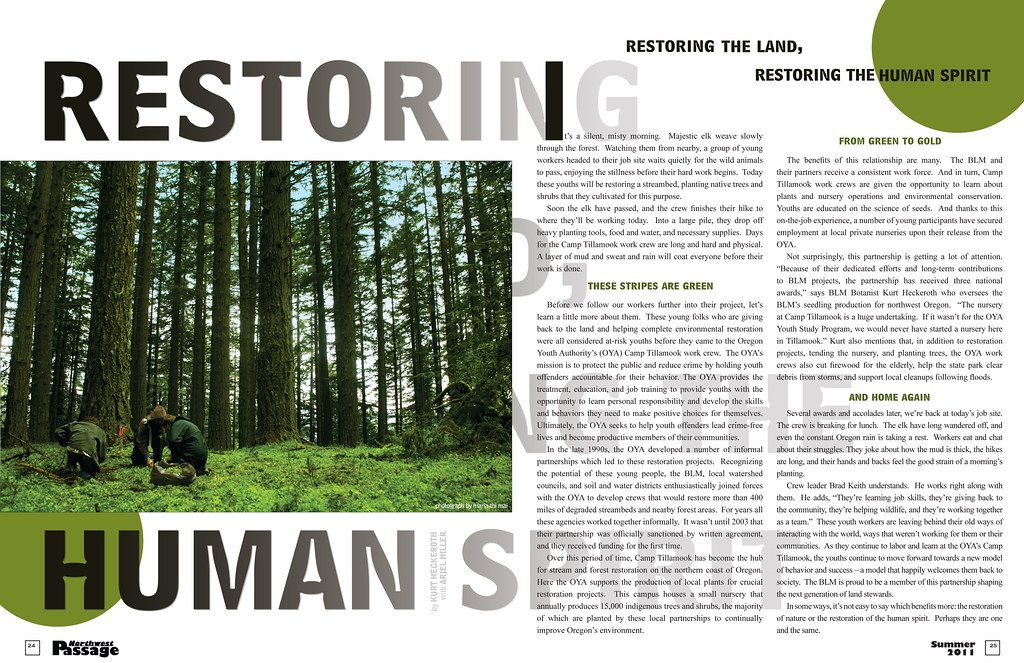This article explores the promises of restoration and the everlasting covenant fulfilled in Jesus Christ as outlined in Jeremiah 33, offering hope and encouragement for seeking Gods guidance and reassurance in personal areas needing restoration and hope.

Photo by Motoki Tonn on Unsplash | Commercial use allowed
Overview of Jeremiah 33
The significance of Jeremiah 33 extends beyond its historical context, resonating with individuals facing uncertainty and despair in their personal lives. It offers a timeless message of seeking God’s guidance and reassurance, inviting people to turn to Him for healing and restoration. This timeless message is applicable to people in various walks of life, regardless of the specific challenges they may be encountering. The enduring nature of this chapter’s message provides a beacon of hope for those navigating challenging circumstances and seeking renewal in various aspects of their lives. Jeremiah 33 offers a promise of divine intervention and restoration, portraying God as actively involved in the lives of His people, offering comfort and hope in the midst of adversity and uncertainty.
 Promises of Restoration and Healing
Promises of Restoration and Healing
Jeremiah 33 offers an abundance of promises of restoration and healing that are truly transformative. The assurance of the restoration of the ruined city and the return of the captives is a profound illustration of God’s unwavering commitment to His people. This promise extends beyond mere physical rebuilding; it encompasses the spiritual and emotional rejuvenation of a broken nation. It is a promise of comprehensive healing that touches every aspect of life, from the physical structures of the city to the hearts and minds of its inhabitants.
Moreover, the emphasis on health, healing, and peace in Jeremiah 33 reflects the divine intention for complete well-being. It conveys the profound truth that God’s restorative work is not limited to the external circumstances but reaches into the depths of the human experience. The promise of peace signifies the calming of turmoil, the healing of brokenness, and the restoration of harmony. It’s a reminder that God’s restoration is not merely superficial but penetrates the innermost being, bringing comfort, wholeness, and serenity to the soul.
#Jeremiah33, #Restoration, #EverlastingCovenant, #JesusChrist, #Messiah, #Hope, #Reconciliation, #Peace, #BiblicalProphecy, #DivinePromise, #Christianity, #OldTestament, #RighteousBranch, #Healing, #PromiseFulfillment, #Salvation, #Faith, #GodsCommitment, #PropheticHope
In addition, the promise of restoration and healing in Jeremiah 33 echoes the divine promise of renewal and revival for the people of Israel. It’s a declaration of God’s redemptive power, transforming devastation into flourishing, despair into hope, and brokenness into wholeness. This promise stands as a testament to the enduring nature of God’s love and His desire to bring about complete restoration in the lives of His people, both then and now.
Furthermore, the promises of restoration and healing in Jeremiah 33 are not limited to a specific historical context. They continue to resonate with individuals facing various forms of ruin and despair, offering a profound message of hope and renewal. For example, just as the chapter emphasizes the health, healing, and peace that God promises to bring to Jerusalem, individuals today can find solace in the assurance that God’s transformative power extends to their personal struggles and challenges, offering healing and restoration in their lives.
The Everlasting Covenant and Messiah’s Role
Jeremiah 33 emphasizes the everlasting covenant and its connection to the covenant with David, shedding light on the role of the Messiah. This everlasting covenant, which God made with David, demonstrates His unwavering commitment to His people. It signifies a promise that extends beyond a single generation, emphasizing the eternal nature of God’s faithfulness to His chosen ones. Through this covenant, God assured David that his lineage would endure, and it ultimately finds fulfillment in Jesus Christ, who is a descendant of David.
The significance of the Messiah’s role as a descendant of David is paramount. It signifies the fulfillment of the promises made to David, assuring the continuation of his lineage and the establishment of an everlasting kingdom. Furthermore, the Messiah’s execution of judgment and righteousness echoes the fulfillment of God’s plan for His people. This underscores the divine authority and justice that the Messiah embodies, bringing hope and restoration to the people of God. An example of this is seen in the life and ministry of Jesus Christ, who fulfills the prophecies of the Messiah and establishes a new covenant based on righteousness and grace.
The everlasting covenant and its connection to the Messiah’s role are not only significant in the historical context of Jeremiah 33, but they continue to hold profound relevance in the lives of believers. The fulfillment of these promises in Jesus Christ serves as a beacon of hope for individuals, emphasizing the unchanging nature of God’s promises and His faithfulness in fulfilling them through His Son. This provides enduring reassurance and confidence, assuring believers of the unyielding nature of God’s covenant and the fulfillment of His redemptive plan through Jesus Christ.
Fulfillment in Jesus Christ
A pivotal aspect of Jeremiah 33 is its fulfillment in Jesus Christ, who embodies the Promise of Restoration and the Everlasting Covenant. The chapter’s promises find their ultimate fulfillment in the redemptive work and grace of Jesus Christ, offering hope and healing to all who believe in Him.
The connection between Jeremiah 33 and Jesus Christ can be seen in the promises of restoration and healing. For example, the assurance of health, healing, and peace that God promises to bring to Jerusalem finds its ultimate fulfillment in the spiritual healing and peace that Jesus Christ offers to humanity. This demonstrates how Jeremiah 33 not only speaks to the restoration of a physical city but also the restoration of the human soul through the redemptive work of Jesus Christ.
Furthermore, the everlasting covenant and its connection to the covenant with David and the Messiah’s role find their fulfillment in Jesus Christ. As the descendant of David, Jesus fulfills the Messianic role of executing judgment and righteousness, bringing about the restoration and redemption of God’s people. This fulfillment in Jesus Christ serves as a source of enduring hope for believers, emphasizing the unchanging nature of God’s promises and His faithfulness in fulfilling them through His Son.
The fulfillment of the promises in Jesus Christ offers a timeless message of hope and restoration to individuals facing challenges and seeking divine intervention in their lives. It serves as a profound reminder of the unyielding nature of God’s promises and the transformative power of His redemptive plan through His Son, Jesus Christ. This fulfillment not only provides hope for the present but also assures believers of the enduring nature of God’s love and His commitment to bringing about complete restoration in their lives.
Restoration for Israel and Judah in the Last Days
Jeremiah 33 offers a poignant revelation of the promises of restoration for Israel and Judah in the last days. This restoration is not only a renewal of physical territories but also a spiritual and emotional rejuvenation for God’s people. The chapter underscores the significance of the Abrahamic covenant, which symbolizes the enduring relationship between God and His chosen people. The covenant’s enduring nature is a testament to God’s unwavering commitment to restore and uplift His people, even in the most challenging times.
Moreover, Jeremiah 33 brings attention to the pivotal role of the tribe of Ephraim in this restoration. The tribe of Ephraim represents the unity and reconstitution of God’s people, signifying a collective revival and reconciliation. The restoration of Ephraim holds deep spiritual connotations, illustrating the divine promise of healing and wholeness not only for a specific group but for all who seek God’s grace and redemption. This emphasizes the universal nature of God’s restoration, offering hope to all who are in need of renewal and spiritual healing.
Furthermore, the chapter illuminates the prophesied acceptance of Jesus Christ by Judah and Israel in the last days. This acceptance symbolizes a profound reconciliation and restoration, signifying the fulfillment of God’s redemptive plan. It is a testament to God’s enduring love and mercy, as His people embrace the ultimate source of restoration and hope, Jesus Christ. This acceptance points to the unification of God’s people under the banner of faith, underscoring the transformative power of God’s promises of restoration and healing.
The promises of restoration for Israel and Judah in the last days are not confined to a specific historical period but continue to provide enduring hope and assurance for believers. The recognition of Jesus Christ as the promised Messiah brings about a profound transformation, illustrating the enduring significance of His role in the restoration and fulfillment of the everlasting covenant as prophesied in Jeremiah 33. This provides a timeless message of hope for individuals, assuring them of the unchanging nature of God’s promises and His enduring commitment to bringing about complete restoration in their lives.
Application of Restoration and Hope
The application of the promises of restoration and hope in Jeremiah 33 extends beyond its historical context, resonating with individuals facing uncertainty and despair in their personal lives. It offers a timeless message of seeking God’s guidance and reassurance, inviting people to turn to Him for healing and restoration. For example, just as God promised to bring health, healing, and peace to Jerusalem, individuals can find hope in the assurance of God’s transformative power in their own lives, bringing healing to brokenness and peace to turmoil.
Moreover, the enduring significance of Jeremiah 33 lies in its encouragement for believers to consider areas in need of restoration and hope. This application is not limited to physical restoration, but also extends to emotional, spiritual, and relational healing. It prompts individuals to reflect on the areas of their lives where they long for renewal and to approach God with faith and prayer, seeking His guidance and reassurance. This timeless message of seeking restoration and hope in God’s promises is a source of strength for those navigating challenging circumstances and seeking renewal in various aspects of their lives. Therefore, the chapter’s application serves as a beacon of hope for people in need of restoration, inspiring them to trust in God’s faithfulness and the fulfillment of His good plans.
The enduring significance of the application of restoration and hope in Jeremiah 33 is not confined to a specific historical era but continues to provide a timeless message of reassurance and renewal for believers. The promises articulated in the chapter offer enduring hope and assurance, assuring individuals of the unyielding nature of God’s promises and His commitment to bringing about complete restoration in their lives. This serves as a profound reminder of the transformative power of seeking God’s guidance and reassurance, offering a timeless source of hope for individuals facing challenges and seeking divine intervention in their lives.
 The Role of the Messiah
The Role of the Messiah
Jeremiah 33 underscores the crucial role of the Messiah in fulfilling the promises of restoration and the everlasting covenant. The chapter emphasizes that the Messiah would be a descendant of David and would execute judgment and righteousness, highlighting the divine plan for salvation and redemption through Jesus Christ. This demonstrates the divine intention to bring hope and healing to a world plagued by despair and ruin, underscoring the significance of the Messiah’s lineage and purpose in offering restoration.
An example of the Messiah’s role in fulfilling the promises of restoration is evident in Jesus Christ’s life and ministry. His lineage as a descendant of David is outlined in the Gospels of Matthew and Luke, affirming the fulfillment of the prophecy concerning the Messiah’s ancestry. Moreover, Jesus Christ’s teachings and acts of compassion exemplified the execution of judgment and righteousness, fulfilling the promise articulated in Jeremiah 33. As a result, individuals find hope and restoration through the redemptive work of the Messiah, illustrating the profound impact of his role in fulfilling the everlasting covenant.
The enduring significance of the Messiah’s role in fulfilling the promises of restoration and the everlasting covenant remains relevant and impactful in the lives of believers. The chapter’s connection to the Messiah’s role and the fulfillment of the everlasting covenant in Jesus Christ serves as a source of enduring hope for individuals, emphasizing the unchanging nature of God’s promises and His faithfulness in fulfilling them through His Son. This provides enduring reassurance and confidence, assuring believers of the unyielding nature of God’s covenant and the fulfillment of His redemptive plan through Jesus Christ.
The Knowledge of the Lord in the Millennium
Jeremiah 33 introduces the profound concept of the knowledge of the Lord and His law being written in the hearts of people during the Millennium. This divine transformation signifies a deep spiritual awakening and alignment with God’s will. The implications of this perspective hold profound significance for believers, offering a glimpse into the profound spiritual renewal that awaits in the future.
During the Millennium, when the knowledge of the Lord and His law is written in the hearts of people, it signifies a remarkable shift in the relationship between humanity and the divine. This transformation implies an intimate and personal connection with God, where His truth and righteousness are internalized, shaping the thoughts and actions of individuals. The promise of this deep spiritual transformation provides hope and assurance, especially in times of uncertainty and despair, as it presents a future where the presence of God is not only external but ingrained within the very essence of humanity.
This concept also aligns with the idea of restoration, as it symbolizes the complete healing and renewal of not just the physical world but of the innermost being of individuals. It emphasizes the enduring nature of God’s plan for His people, assuring believers that His promises of restoration extend beyond external circumstances to the core of their existence. Therefore, the knowledge of the Lord being written in the hearts of people during the Millennium is not merely a future event but a testament to the depth of God’s love and His desire for an intimate, everlasting relationship with humanity.
The enduring significance of the knowledge of the Lord and His law being written in the hearts of people during the Millennium offers a timeless message of hope and renewal for believers. This profound concept provides enduring reassurance, assuring individuals of the unchanging nature of God’s promises and His enduring commitment to bringing about complete restoration in their lives. It serves as a beacon of hope for individuals, inspiring them to trust in God’s faithfulness and the fulfillment of His good plans in the future.
 Connection to Contemporary Context
Connection to Contemporary Context
The themes and promises articulated in Jeremiah 33 resonate deeply with contemporary spiritual and personal contexts. The chapter’s enduring message offers encouragement for individuals to seek reassurance and restoration through faith and prayer, providing a timeless source of hope and renewal.
Furthermore, in today’s world, where uncertainty, despair, and challenges are prevalent, the message of restoration and healing in Jeremiah 33 serves as a beacon of hope. People facing personal turmoil or societal upheaval can find solace in the promises of God for restoration and renewal. For example, individuals experiencing broken relationships, financial struggles, or emotional distress can draw strength from the assurance that God promises to bring healing and peace to their lives. This message of hope is especially significant in times of global crises, where many grapple with uncertainty and fear, as it reinforces the belief that God’s restoration is not limited by worldly circumstances.
Moreover, the application of Jeremiah 33 in contemporary contexts extends to the restoration of communities and nations. As societies face division, conflict, and injustice, the promise of restoration in the chapter ignites a call to seek God’s guidance for healing and reconciliation. Just as Jerusalem was promised to be filled with the sounds of joy and prosperity, communities and nations can cling to the hope that God’s restoration extends beyond individual lives to encompass the broader scope of collective well-being. This provides a powerful reminder that seeking God in times of uncertainty and despair is essential, not only for personal restoration but also for the healing of societies and nations. Therefore, the message of Jeremiah 33 is relevant and impactful in addressing the multifaceted challenges of the contemporary world.
The enduring significance of Jeremiah 33 in contemporary contexts provides a timeless message of hope and renewal for individuals facing various forms of ruin and despair. For example, just as the chapter offers a beacon of hope for people in need of restoration, inspiring them to trust in God’s faithfulness and the fulfillment of His good plans, it continues to offer enduring reassurance and confidence to those navigating challenging circumstances and seeking renewal in various aspects of their lives.
 Enduring Significance
Enduring Significance
Jeremiah 33 holds enduring significance as it provides a message of hope and restoration during times of despair and uncertainty. This enduring message is not confined to the historical context of Jeremiah’s time but extends to all generations, offering timeless reassurance and guidance to those in need. The promises of healing, renewal, and the fulfillment of the everlasting covenant serve as an anchor for individuals facing challenges and seeking divine intervention in their lives.
For example, just as God promised to bring health, healing, and peace to Jerusalem, the enduring significance of Jeremiah 33 lies in its assurance that God’s promises of restoration are not bound by time or circumstance. This means that individuals today can find comfort in knowing that the restoration and healing promised in this chapter are available to them as well. Whether it is physical healing, emotional restoration, or spiritual renewal, the enduring significance of these promises remains relevant and accessible to all who seek God’s intervention in their lives.
Moreover, the fulfillment of these promises in Jesus Christ highlights the timeless relevance of Jeremiah 33. The chapter’s connection to the Messiah’s role and the fulfillment of the everlasting covenant in Jesus Christ serves as a source of enduring hope for believers. By emphasizing the certainty and reliability of God’s covenant with David and the Messiah’s execution of judgment and righteousness, Jeremiah 33 assures individuals of the unwavering nature of God’s promises, regardless of the era in which they are received. This underscores the enduring significance of the chapter as it continues to inspire faith and confidence in the hearts of believers across generations.
The enduring significance of Jeremiah 33 serves as a timeless message of hope and renewal, offering reassurance and guidance to individuals facing challenges and seeking divine intervention in their lives. This enduring message transcends time and continues to resonate with believers, providing a source of strength and hope in the face of adversity and uncertainty.

 Promises of Restoration and Healing
Promises of Restoration and Healing The Role of the Messiah
The Role of the Messiah Connection to Contemporary Context
Connection to Contemporary Context Enduring Significance
Enduring Significance

